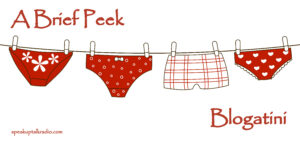Editors and Publishing by Bill Arnott

I fired two editors before I even began. One was hurt, the other relieved. The former sent me a gushing email as though we’d broken up after years of marriage, rather than the brief intro we’d had over coffee. The latter wished me well in a way that made it clear she knew she’d dodged an awful client. This dawned on me as she skipped away humming Katrina and the Waves.
The unsuspecting winner behind door number three became my editor, working with me to thresh out my nonfiction – part memoir, part life-instruction manual. She did the things editors do: correct punctuation, tidy structure, coax improved writing and a better overall flow to the work. This killed a lot of my jokes. Euthanized may be more accurate. But the result was good.
We met up later at a writers’ conference. Our book was doing well but she felt I needed a new genre, suggesting I try writing erotic fiction. Maybe she was prescient. Fifty Shades hadn’t yet hit. I’d just heard Diana Gabaldon read erotica to a small group of us. I was playing hooky from my day job (the one that paid the rent) and have to admit, having a beautiful person read dirty books to you is a fine way to spend an afternoon. And although Gabaldon’s work is exceptional, it’s assuredly not my voice. Knowing this makes my own writing better. Despite my editor’s skills, I don’t believe she could ever find me an erotic muse. I’d only giggle, maybe show her how to spell BOOBS on a calculator.
So instead we worked with what we had, my self-published nonfiction, and began to look for traditional publishers. No one was interested. It “didn’t fit,” we were told. To which my editor wished me well and disappeared, vanishing in a cloud of proofreading marks – poof!
Now, traditional publishers don’t only acknowledge self-published books but seek them out, welcoming work with established readerships and marketability. I rather liked the fact my first book didn’t fit, confirming its uniqueness. Since then, my self-published stuff has been picked up by traditional publishers. And although it makes me proud, a sense of approval, that (newer) work does in fact “fit.” Resulting in the age-old human paradox: wanting to belong while wanting to maintain individuality. So rather than fence-sitting I now do both, self-publishing what I want to deliver in a certain manner, while still persevering with submissions, rejections, and the occasional acceptance from traditional publishers (and their machete-wielding editors). It’s a fine balance, but it works. Collaboration’s a good thing. But occasionally I need the individualistic approach to creating, writing what only I know, my voice singular. The same as each and every one of us.
